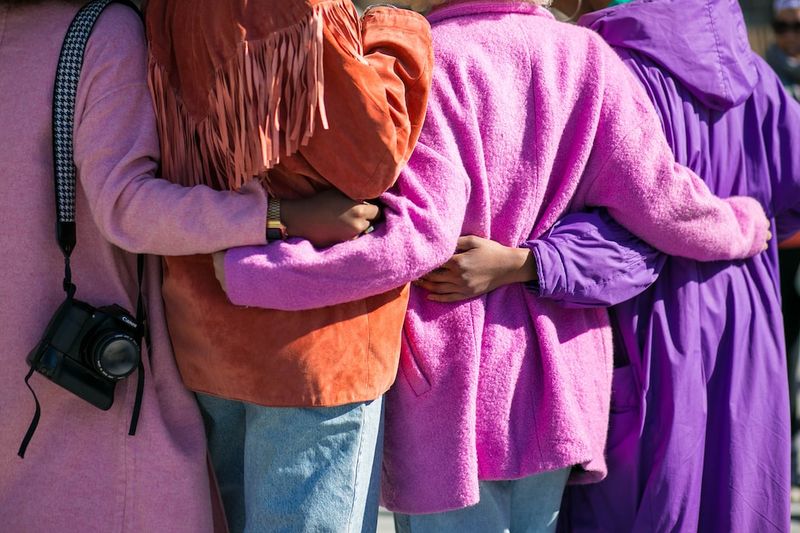- Unity and Education: Opal Lee, the ‘Grandmother of Juneteenth,’ Discusses the Significance of the National Museum and the Legacy of Slavery
- You might want to read !
Unity and Education: Opal Lee, the ‘Grandmother of Juneteenth,’ Discusses the Significance of the National Museum and the Legacy of Slavery
“Juneteenth is a time for harmony and understanding, to dismantle the walls of ignorance and prejudice that divide us as a nation.” – Opal Lee
Opal Lee, affectionately known as the ‘Grandmother of Juneteenth,’ has dedicated her life to spreading awareness about the historical significance of Juneteenth and the legacy of slavery in the United States. In an exclusive interview, Mrs. Lee discussed the importance of unity and education, as well as her thoughts on the National Museum and its role in educating future generations.
From Dallas to the Nation: Understanding the Significance of Juneteenth
Juneteenth, also known as Emancipation Day or Freedom Day, marks the anniversary of the emancipation of enslaved African Americans in the United States. On June 19, 1865, Union General Gordon Granger arrived in Galveston, Texas, and proclaimed the end of slavery, two and a half years after the Emancipation Proclamation was signed. The celebration of Juneteenth has since evolved into a day that commemorates African American freedom and emphasizes the importance of equality and justice.
Opal Lee, a native of Fort Worth, Texas, has been at the forefront of raising awareness and recognition for Juneteenth. At 94 years old, Mrs. Lee tirelessly advocates for Juneteenth to become a nationally recognized holiday. Her efforts have gained significant momentum in recent years, as more states and organizations embrace the significance of this day.
Unity as the Foundation for Progress
In her interview, Opal Lee emphasized the importance of unity in addressing the challenges our society faces today. She believes that Juneteenth serves as a symbolic reminder of the progress we have made as a nation and the work that still lies ahead. Lee states, “Unity is the key to achieving true equality and justice. We must come together as a nation, appreciating our diverse histories while forging a common future.”
Unity, according to Lee, necessitates acknowledging the painful legacy of slavery and actively working towards a more inclusive society. She believes that education plays a vital role in this process, as it enables individuals to understand the struggles of the past, confront present-day inequalities, and shape a more just future.
The National Museum’s Role in Educating Future Generations
When discussing the National Museum and its significance, Mrs. Lee expressed both hope and concern. She commends the museum for shedding light on the stories and experiences of African Americans throughout history, contributing to a broader understanding of our nation’s complex past. However, she also stresses the importance of making such knowledge accessible and engaging to younger generations.
Lee believes that the National Museum should partner with educational institutions, providing resources and programming that focus on the often-overlooked contributions of African Americans. By integrating this knowledge into school curricula, Lee asserts that we can foster greater empathy, inclusivity, and understanding among youth.
Editorial: Embracing the Legacy of Juneteenth
Opal Lee’s tireless advocacy for Juneteenth highlights the ongoing struggle for true equality in our nation. On this historic day, as we celebrate the emancipation of enslaved individuals, we must also reflect on our collective responsibility to confront the legacy of slavery that continues to shape our society.
Juneteenth represents an opportunity for reflection and education, illuminating the experiences of African Americans and reminding us of the continued fight for justice. It is not merely a commemoration of the past; it is a call to action for the present and future.
As a society, we must prioritize the inclusion of African American history in our educational systems. By doing so, we equip our youth with the knowledge and awareness needed to dismantle systemic racism, foster unity, and forge a more equitable future. Juneteenth should serve as a catalyst for change, a day on which we commit to actively working towards a society free from inequality and discrimination.
We must also recognize the importance of institutions like the National Museum, which can amplify the voices and stories that have been silenced throughout history. However, accessibility and engagement remain key challenges. The National Museum must ensure that its resources reach beyond its walls and into classrooms across the country, actively participating in educational partnerships that promote a more comprehensive understanding of our nation’s history.
Opal Lee’s words and advocacy remind us that the fight for unity, justice, and education is ongoing. It is a collective responsibility that demands our attention and action. As we honor the legacy of Juneteenth, let us commit ourselves to a better future, where the lessons of the past are embraced, and the promise of equality becomes a reality for all.

<< photo by Vonecia Carswell >>
The image is for illustrative purposes only and does not depict the actual situation.
You might want to read !
- Dreaming Big: A Closer Look at the 2023 U.S. Open Tee Times and Pairings
- The Evolution of Juneteenth: From Emancipation to Federal Recognition
- Celebrating Fatherhood and Community: A Heartfelt Message from Pasadena Councilmember Tyron …
- Powerful Perryton: Analyzing the Devastation and Aftermath of the Deadly Texas Tornado
- How the Phoenix Mercury is Addressing Airport Incidents and Its Impact on WNBA Players
- “Examining the Impact of Brittney Griner’s Request on Phoenix Mercury’s Travel Schedule Changes”
- Exploring the High Stakes: Sunday’s Final Round Pairings at the U.S. Open in Los Angeles
- The Tragic Death of Ray Lewis III Raises Concerns about the Opioid Crisis
- Juneteenth: Uncovering the Historical Significance of A&M University
- Fear and Tragedy: Unraveling the Motives Behind the Washington Gorge Mass Shooting




